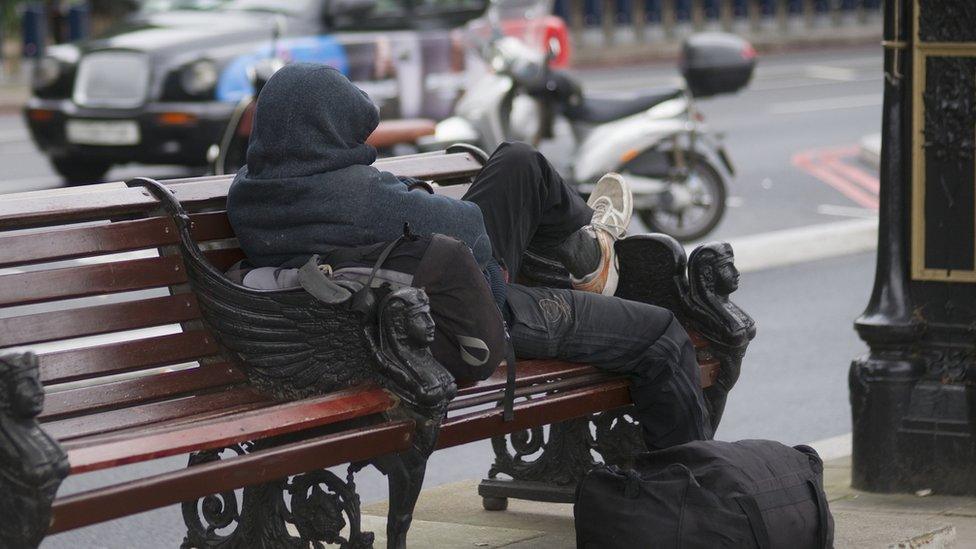Covid: Calls to homeless charity rose by a third
- Published
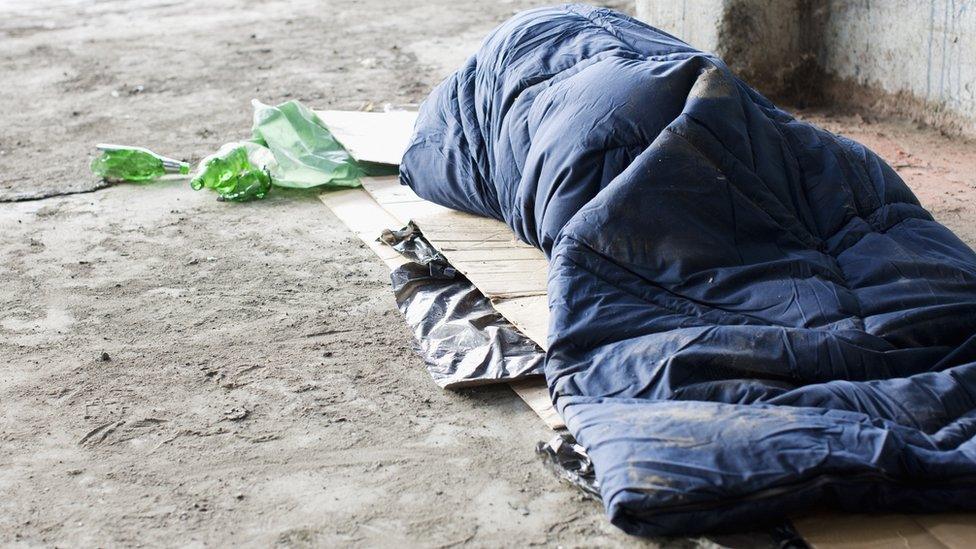
Centrepoint took more than 13,000 calls for help in the year 2020-21
Calls from young people to a homeless charity increased by about a third during the coronavirus pandemic, figures show.
Centrepoint said demand for urgent support such as emergency food packages was higher in 2020-21 than in the previous year.
Chantelle Chance, from the charity's Barnsley branch, said lockdowns had led to "a lot more family breakdowns".
The government said it was providing more than £750m to tackle the issue.
Centrepoint said unemployment and family breakdowns had fuelled homelessness and many vulnerable young people had "slipped through the cracks" despite government help.
Helpline manager Paul Brocklehurst said the pandemic had "made worse the enormous struggle young people were already facing to access the emergency support they need".
He said the government's furlough scheme and the Everyone In initiative to house rough sleepers had helped but many people had been missed.
"If the government is serious about ending rough sleeping and tackling homelessness, it needs a long-term plan for investment that includes ring-fenced money for youth-specific accommodation and services," he added.
Centrepoint said it had 13,019 incoming calls in 2020-21, compared with 9,770 the previous year.

'More accepted'
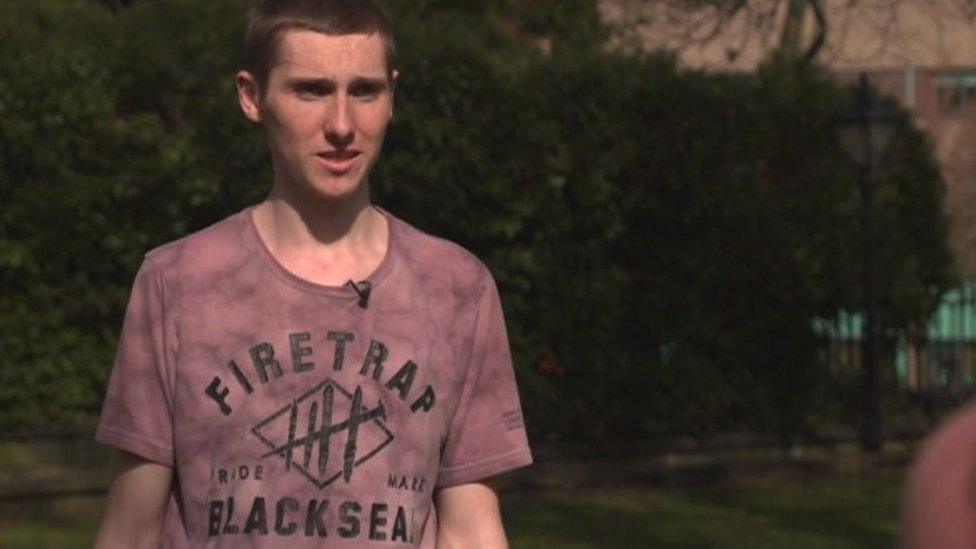
Jamie found himself homeless at the end of the first lockdown last summer
Jamie, 20, was left homeless after the first lockdown. He has been through a family breakdown and mental health struggles, and in September last year he found himself with nowhere to stay.
He has found it difficult to find work during the pandemic but is hoping to go to college at the end of the year to help improve his chances. He's now living in Barnsley supported by Centrepoint.
"I didn't like it at first, but then I got to know the staff and I realised, there's nothing to be scared of," he said.
"I got used to everyone and started to enjoy it, and I found I was more accepted here than I was at home.
"If I didn't have this I don't know what I'd do, honestly."

Becky Joyce, co-founder of Street Angels Leeds, also works with young people affected by homelessness.
She said: "Since coming back out of lockdown there's a lot more youngsters on the streets, teenagers and those in their early 20s, due to violence at home or arguments with their parents.
"They don't know how to help themselves, they don't know how to help their situations and it's harder to get out of these situations than it is for adults."
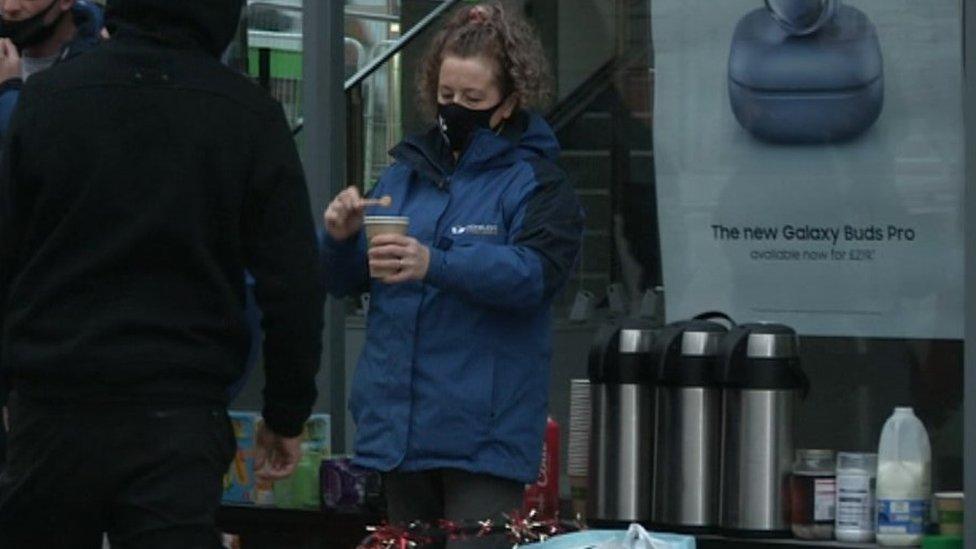
Charity Street Angels said there are more young people on the streets
Caz Vary, 24, has a place to live but is pregnant and struggling financially.
"With Covid it has been really, really hard to make friends and just to sort of feel like you've got that help," she said. "A lot of the support that was available has been closed down."
A spokesman for the Ministry of Housing, Communities and Local Government said: "Since 2018 the Homelessness Reduction Act has helped over 300,000 households who were homeless, or at risk of homelessness, into more permanent accommodation - including many young people.
"We are also supporting councils through our Homelessness Advice and Support Team, which includes dedicated youth homelessness adviser roles."

Follow BBC Yorkshire on Facebook, external, Twitter, external and Instagram, external. Send your story ideas to yorkslincs.news@bbc.co.uk, external.
Related topics
- Published29 September 2020
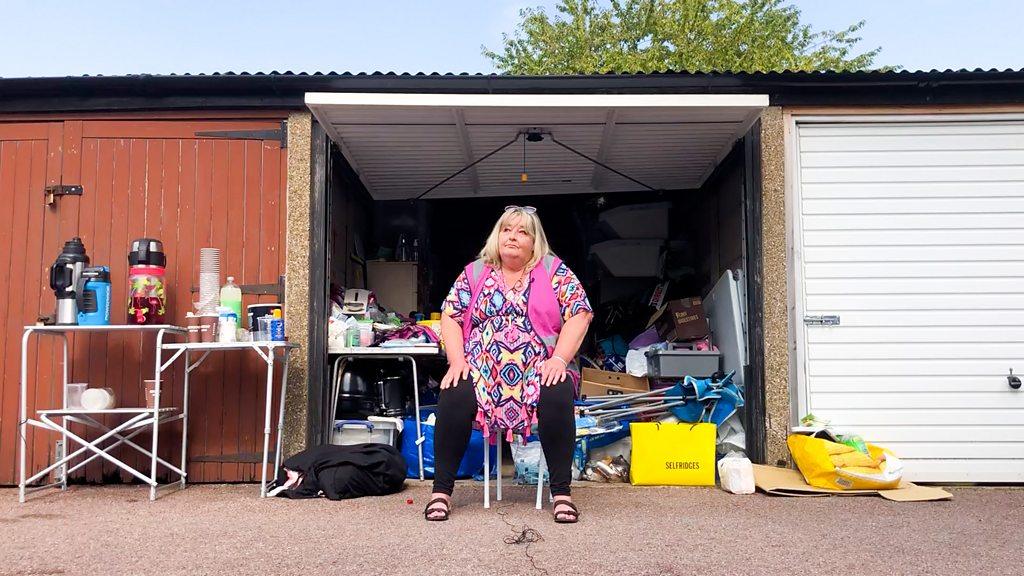
- Published17 March 2021
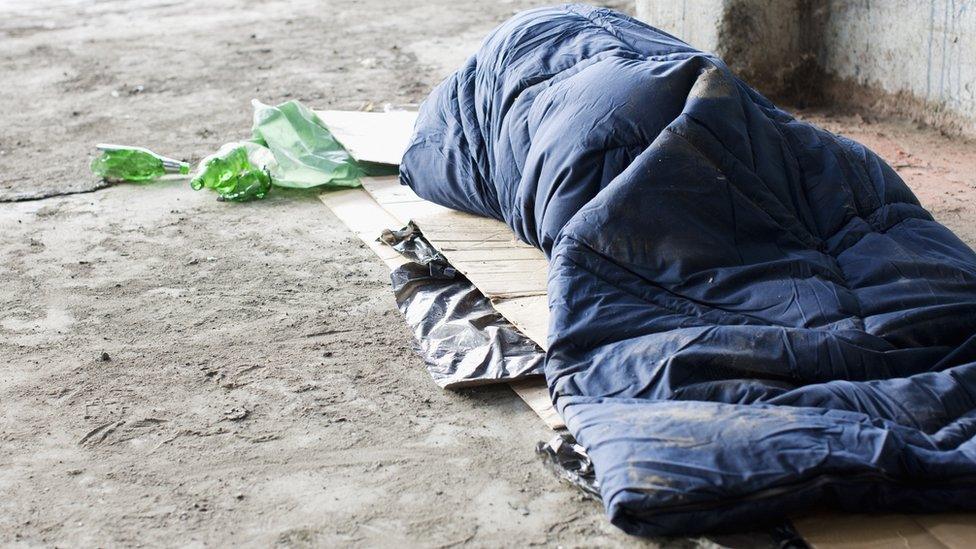
- Published25 March 2020
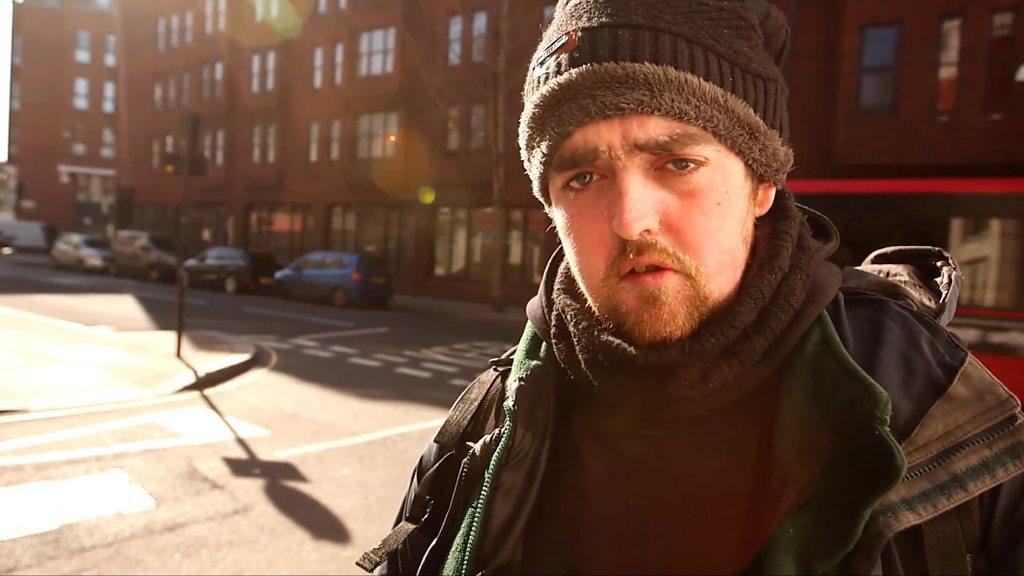
- Published11 March 2021
